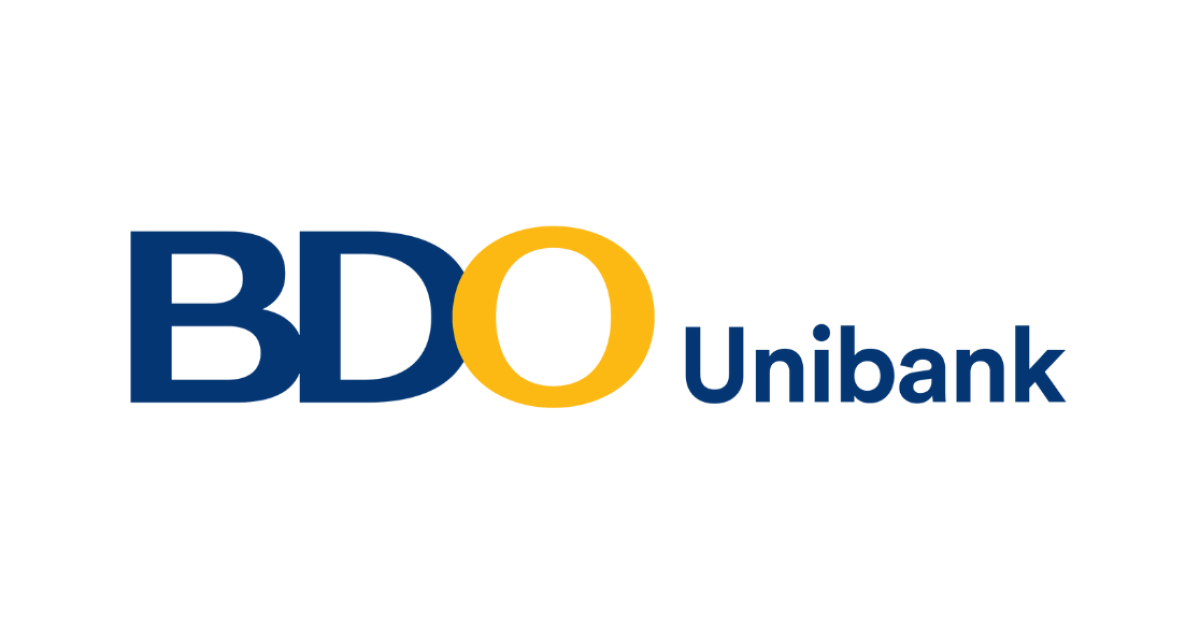Have you ever felt like your money is a sleeping giant, powerful but unmoving, and no matter how much you prod or poke, it refuses to budge? Or like you’re walking through fog, bills and debts swirling around you, and you can’t figure out which direction to step next? That’s money paralysis: the freeze that happens when financial stress becomes more than numbers, it becomes fear, shame, and indecision.
You’re not lazy. You’re not alone. When you stare at your bills, feel your chest tighten, and decide Netflix is a safer choice than dealing with “utang” or “budget planning,” that’s your mind trying to protect you from emotional overwhelm. This article isn’t about guilt or harsh discipline. It’s a compassionate, Filipino-tailored guide to name that freeze, understand it, and melt it, one small step at a time.
In the Philippines, many of us live with multiple pressures: credit card bills, utang from informal moneylenders, family obligations (for parents, siblings, or balikbayan remittances), hindi sapat na sahod, and the cultural shame of not being “maayos” financially. Yet most Filipinos, nearly 60 percent in one study, say money is their top stressor. We’re not weak or irresponsible when we freeze, we’re human.
By the end of this piece, you’ll see why you feel stuck and have a clear, manageable path to reclaiming financial confidence — starting with something you can do today.

The Roots of Freeze: Why We Experience Money Paralysis
Before we rush into solutions, let’s validate what’s happening beneath the surface:
Information Overload: “Saan Ba Ako Mag-uumpisa?”
With GCash, Maya, banks, credit, crypto, peer-to-peer lending, and micro-investments, the options feel overwhelming. Many Filipinos feel paralyzed by choice — “too many apps, too many fees, too many terms I don’t understand.”
Fear of Failure & “Hiya”
What if I choose the wrong app? What if I lose money? What if family or friends find out? The cultural weight of hiya, shame or embarrassment, can stop us from asking questions or admitting uncertainty.
Scarcity Mindset
When you believe, deep in your bones, “walang sapat” (there will never be enough), it feels pointless to budget or save. “Uubusin din naman ‘yan” (I’ll just end up spending it) becomes a default mental script.
Past Financial Trauma
Maybe you or someone you know had a failed business, got trapped in high-interest debt, or watched a family financial crisis. Those experiences leave deep scars that voice loud warnings: “Don’t try. You’ll fail.”
Psychological research in the Filipino context shows that financial difficulties at the family level are strong predictors of psychological distress.

The Thaw: 5 Practical Steps to Overcome Money Paralysis
You don’t have to leap into a full-blown budget or overhaul your life overnight. Choose one of these steps to begin. Over time, layer the others.
Start with a Financial Temperature Check — Not a Full Audit
This is low-stakes, low-pressure. It gives you a baseline without demanding perfection.

Tame the Taboo: Have “The Money Talk” with Yourself
This is a private, safe way to face your financial feelings before involving others.
What to Do:
- Write down one financial fear (e.g. “What if I can’t pay rent next month?”)
- Write down one financial goal (even small, e.g. “Save P100 this week”)
- Choose a nonjudgmental phrase you’ll repeat when anxiety spikes (e.g. “This doesn’t define me”)
Why this works: we often don’t talk about money because of shame or fear. But acknowledging it internally is the first step to freeing it.
You may find yourself ready later to talk with a trusted family member, friend, or financial counselor. Experts say that naming and externalizing fear reduces its power.

Automate Your Small Savings (The “Set-and-Forget” Method)
One of the most powerful steps is to let technology help you.
What to Do:
- Pick a small, doable amount (e.g. P50/day or P500/week)
- Set up an auto-transfer (from your salary or main wallet) to a digital savings account or app (e.g. GCash GSave, Maya Goals)
- Treat it like paying a bill — don’t touch it unless in true emergency
Why this is effective:
- You remove the decision from daily willpower
- "Out of sight, out of mind" helps
- It builds momentum and habit
- Over time, it nudges your mindset from “no savings possible” to “something is possible”
When Filipinos see that even small amounts accumulate, the mental shift can be powerful.

Conquer One Piece of Debt (The Snowball Method)
Debt is often what freezes people most. But you don’t have to slay the whole dragon at once — just one limb.
What to Do:
- List all your debts (utang) from smallest balance to largest (ignore interest rates for now)
- Continue to make minimum payments on all debts
- Direct any extra funds to paying off the smallest debt until it's cleared
- Once cleared, roll that payment amount into the next smallest, and so on
This is known as the debt snowball method. Many financial commentators praise it for its psychological benefit, small ‘wins’ early build momentum and confidence.
In the Philippine context, the Inquirer explains why this is effective for Pinoys, it provides motivation and reduces overwhelm when one debt disappears.
Pro tip: If one debt is dragging you due to very high interest (e.g. informal lending), treat it specially, maybe negotiate or prioritize it. But for most consumer debt, snowball works well psychologically.

Define Your “Bakit” (Your Emotional “Why”)
Numbers alone rarely motivate us when the pressure is chronic. The why gives you purpose and staying power.
What to Do:
- Ask yourself: Why do I want this? (Example answers: “Para sa tuition ni bunso,” “Para hindi na lagi akong kinakabahan,” “Para maipundar ang negosyo,” “Para sa kapayapaan ng isip.”)
- Write it somewhere visible — phone wallpaper, sticky note, mirror
- Revisit this why often — when your motivation dips, reconnect with it
Why this works: tapping into your values, your family, your future self gives emotional fuel. In a Filipino mindset, many will tie financial choices to family, legacy, care for elders, or peace of mind.

Conclusion
Money paralysis is a heavy, invisible burden, but it’s not permanent. Many Filipinos carry it silently, believing there’s something morally wrong with their stagnation. But once we name it, we realize it’s a real human response to stress, shame, and overwhelm.
You don’t need to do everything at once. The power lies in gradual, consistent progress. Choose one small step from above this week. Track something. Write your fear and goal. Automate P50. Pay off one debt. Define your why.
And when you're ready, consider reading more from Finmerkado, we have guides on Debt Snowball, GCash GSave, and how to start budgeting in PH.
You don’t need to figure it all out today. Just move one inch. Your future self will thank you.
Further Reading / External References
- AIA Philippines survey: nearly 60 percent of Filipinos say money is their top stressor Philstar
- Why the debt snowball strategy works — its psychological benefit explained Bankrate
- Filipino financial distress and mental well-being research PMC
- Study on financial anxiety, behavior, and environmental factors in a Filipino work-scholar context Jurnal Unai
Frequently Asked Questions
Money paralysis is the freeze caused by emotional overwhelm, fear, or shame — it’s less about willpower and more about survival response. Unlike procrastination, which is often a conscious delay, paralysis is deeper: you want to act, but you feel stuck.
Yes — that’s why the steps emphasize small, manageable actions (e.g. tracking expenses, saving P50, paying off smallest debt). Over time, consistency matters more than big jumps.
Not always, mathematically. The “avalanche” method (highest-interest first) can save you more in interest. But snowball is often better psychologically — it gives you early wins and keeps you motivated. The “best” depends on your mindset, priorities, and debt types.
That’s a real challenge in Filipino life. One tip: build in a buffer or “flex fund” in your spending plan. Use open, honest conversation (where possible) about your limits. And treat any extra as “bonus,” not baseline.
If anxiety, shame, or fear of money becomes overwhelming (sleep loss, panic attacks, paralysis that lasts weeks), seeking help is wise. A counselor can help you untangle money and emotions — you don’t have to carry this alone.

At UNO Bank, we prioritize speed and efficiency. Our streamlined online application process is designed to take only minutes, ensuring you can quickly move from application to approval. Once approved, funds are swiftly transferred to your bank account, demonstrating our commitment to fast service, especially for our valued returning customers.
Metrobank World Mastercard

- Exclusive welcome gift for New-to-Metrobank credit cardholders until July 31, 2024
- 1 air mile per ₱17 foreign currency spend
- 1 air mile per ₱50 spend on other categories
- Up to 50% OFF on deals here and abroad
- Complimentary two global lounge passes per year
- FREE FOR LIFE annual fee for two supplementary cards
- Ideal for world explorers
RCBC JCB Platinum

- Earn reward points for as low as ₱25 per purchase
- Complimentary access to over 50 airport lounges
- Free travel insurance of up to ₱1 million for every trip
- Access to 24/7 Concierge Desk for your reservations and card-related emergencies
- No Annual Fee For Life
- Ideal for local and international travelers
Security Bank Platinum Mastercard

- Waived annual fee for the first year
- Earn 2 never-expiring point for every ₱20 spent
- Access over 1,300 lounges across 500+ airports worldwide
- Free travel insurance when booking airline tickets
- Discounts at favorite shops and restaurants
- Receive up to $200 coverage when you shop online
- Ideal for frequent travelers and international shoppers
BDO Unibank Personal Loan

BDO Unibank’s Personal Loan offers unsecured financing of up to ₱2 million with a fully digital or branch-assisted application process. It’s an accessible cash option for immediate needs like debt consolidation, travel, events, and other lifestyle expenses. With competitive rates starting at 0.98% monthly add-on and flexible repayment up to 36 months, it’s a solid choice for salaried and self-employed individuals.
Chinabank Personal Loan

Chinabank’s Easi‑Funds Personal Loan (via China Bank Savings) offers unsecured financing of up to ₱1 million, positioned similarly to peer offerings. It carries an add‑on interest rate of approximately 1.3%–1.5% monthly, translating to an estimated APR of 16%–19% depending on loan tenure and credit profile. Tenure options generally range from 12 to 36 months, while approval often comes within 3 to 5 banking days. Being backed by Chinabank’s extensive branch network and digital infrastructure, it combines legacy banking strength with modern convenience.
EastWest Personal Loan

Unsecured personal loan designed for flexible multi-purpose use—whether for tuition, travel, or business needs. Offers terms up to 60 months and competitive add-on rates.











